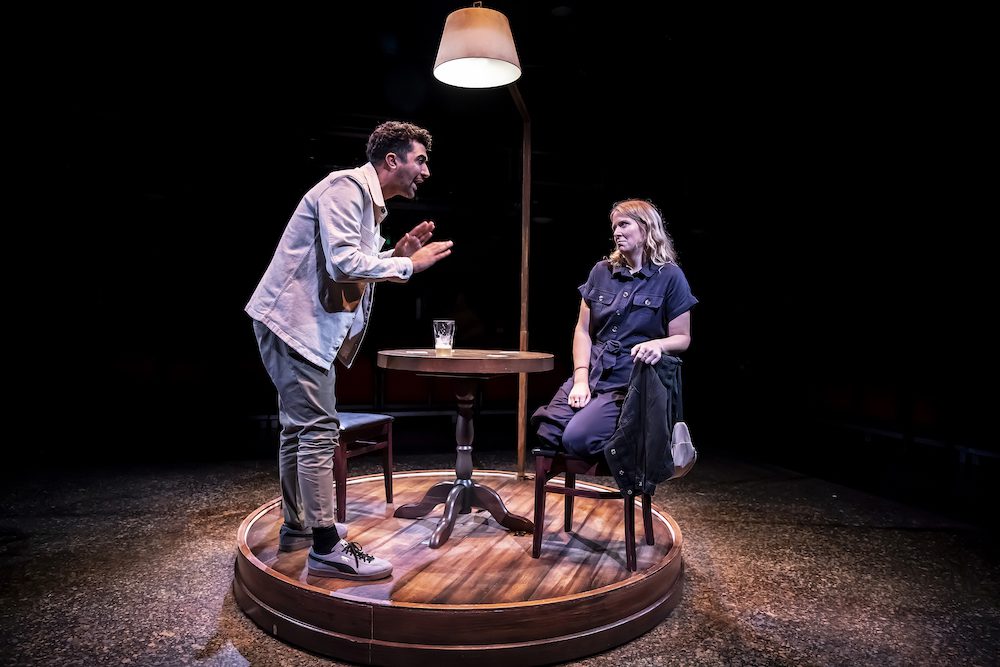A man (Archie Blackhouse) and a woman (Letty Thomas) meet for a first date. There’s been previous interaction, and it’s 2023, so they clearly met on the apps. So far so normal. But fairly early on the woman decides that she’s not playing by the rules anymore. The man is slower to break with convention – he’s choosing to knock his rough edges off to be the everyman that might give him best romantic advantage.
Strategic Love Play is a wry take on the disaster that is the modern dating scene. It is witty and zingy – at times reminiscent of an old fashioned screwball comedy. But at times, I felt that humour overshadowed the meaning and at others, that the meaning was a little too telegraphed.
Yes, dating is a horrendous activity in the modern world. And the woman’s refreshing take that they should stop trying to be perfect Instagram versions of themselves was one that resonated with me and much of the audience. But the problem I had with this couple was that I didn’t really believe in them as a partnership. Sure, wanting perfection is pointless. But striving for better and working for it is not. So in some ways, while I agreed with the diagnosis, I found the nihilism of the solution a little disappointing.
The direction was extremely kinetic. I can understand this. The setting of two people sat at a pub table for an evening is hard to make exciting and Katie Posner employs a bag of tricks to jazz this up. However, there is a power in stillness that was underused. I found some of the fussing with the set distracting rather than illuminating. The intentions were interesting and good, but could have been reigned in slightly to better effect.
Overall, Strategic Love Play is an interesting and entertaining piece. But it occasionally also felt shrill and heavy handed. It wasn’t an unpleasant way to spend 70 minutes, but I didn’t come out of it feeling that I had my eyes opened, my heart warmed or hardened or my prejudices enforced or challenged. It felt like love as a sitcom ideal, but dating challenged as a fundamental failure. That’s a wider societal problem, but one the play seemed to want to have more to say about than I ultimately found in the content.

